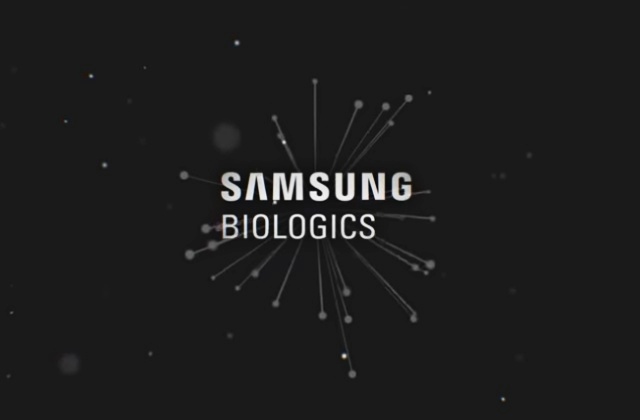Samsung Biologics and AstraZeneca are reportedly dissolving their biosimilar joint venture. They have formed the Archigen Biotech for the JV, and now this is being shut down.
An official of Samsung Biologics, the biotech unit of the Samsung Group, said on Tuesday, May 24, that it has decided to end its joint venture with the British-Swedish multinational pharmaceutical and biotechnology company due to the suspension of the development of a biosimilar product.
According to Yonhap News Agency, the decision came two months after the Samsung Biologics’ board agreed with the liquidation of Archigen Biotech Ltd. The said company was set up in 2014 via a 50-50 joint venture with AstraZeneca.
When it was first established, Archigen Biotech was working on the development of SAIT101, a biosimilar of Rituximab, a monoclonal antibody medication used for the treatment of lymphoma. It was explained that a biosimilar is a similar duplication of an already existing and approved biologic drug.
However, both Samsung Biologics and AstraZeneca halted the biosimilar program and scrapped the Rituxan copy project. It was revealed to have been actually discontinued in the second half of 2020 after competitors such as Celltrion Inc. started marketing the same products.
Fierce Pharma further reported that Archigen Biotech already launched a phase 3 trial of the SAIT101 in June 2016, but the works have been progressing very slowly. In fact, the original target date for the completion of the project has already been pushed back by more than a year.
The results of the trial were revealed last month and showed that the Rituxan biosimilar medication generated a response in 66.3% of patients, which is on par with the 70.6% posted by the originator.
But then, another issue has cropped up - the market for this product is already crowded with other biotech firms introducing their own biosimilars, with some already being sold. Aside from Celltrion, Achigen Biotech is also competing with Teva Pharmaceuticals, Pfizer, Mylan, and Novartis’ Sandoz. With all of these firms, it became apparent to Samsung Biologics and AstraZeneca that the best move now is to scrap their own Rituxan biosimilar product.



 China’s New Home Prices Post Sharpest Drop Since 2022 Amid Ongoing Property Slump
China’s New Home Prices Post Sharpest Drop Since 2022 Amid Ongoing Property Slump  FedEx Faces Class Action Lawsuit Over Tariff Refunds After Supreme Court Ruling
FedEx Faces Class Action Lawsuit Over Tariff Refunds After Supreme Court Ruling  Japan Manufacturing PMI Jumps to Four-Year High as Global Demand Strengthens
Japan Manufacturing PMI Jumps to Four-Year High as Global Demand Strengthens  Venezuela Oil Exports to Reach $2 Billion Under U.S.-Led Supply Agreement
Venezuela Oil Exports to Reach $2 Billion Under U.S.-Led Supply Agreement  Trump Orders Federal Agencies to Halt Use of Anthropic AI Technology
Trump Orders Federal Agencies to Halt Use of Anthropic AI Technology  Anthropic Refuses Pentagon Request to Remove AI Safeguards Amid Defense Contract Dispute
Anthropic Refuses Pentagon Request to Remove AI Safeguards Amid Defense Contract Dispute  Coupang Reports Q4 Loss After Data Breach, Revenue Misses Estimates
Coupang Reports Q4 Loss After Data Breach, Revenue Misses Estimates  Strait of Hormuz Oil and LNG Shipments Disrupted After U.S.-Israel Strikes on Iran
Strait of Hormuz Oil and LNG Shipments Disrupted After U.S.-Israel Strikes on Iran  Hyundai Motor Group to Invest $6.26 Billion in AI Data Center, Robotics and Renewable Energy Projects in South Korea
Hyundai Motor Group to Invest $6.26 Billion in AI Data Center, Robotics and Renewable Energy Projects in South Korea  Strait of Hormuz LNG Crisis Triggers Global Energy Market Shock
Strait of Hormuz LNG Crisis Triggers Global Energy Market Shock  Samsung Electronics Stock Poised for $1 Trillion Valuation Amid AI and Memory Boom
Samsung Electronics Stock Poised for $1 Trillion Valuation Amid AI and Memory Boom  Oil Prices Surge 13% as U.S.-Israel Strikes on Iran Spark Supply Fears
Oil Prices Surge 13% as U.S.-Israel Strikes on Iran Spark Supply Fears  Asian Currencies Slide as US-Israel Strikes on Iran Trigger Oil Surge and Risk-Off Rally
Asian Currencies Slide as US-Israel Strikes on Iran Trigger Oil Surge and Risk-Off Rally  Stock Market Movers: Dell, Block, Duolingo, Zscaler, CoreWeave, Autodesk, Rocket, MARA
Stock Market Movers: Dell, Block, Duolingo, Zscaler, CoreWeave, Autodesk, Rocket, MARA  Australian Job Advertisements Hit 16-Month High as Labour Market Stays Resilient
Australian Job Advertisements Hit 16-Month High as Labour Market Stays Resilient  USITC to Review Impact of Revoking China’s PNTR Status, Potentially Raising Tariffs on Chinese Imports
USITC to Review Impact of Revoking China’s PNTR Status, Potentially Raising Tariffs on Chinese Imports  Boeing Secures $166.8 Million U.S. Navy Contract for P-8A Engineering and Software Support
Boeing Secures $166.8 Million U.S. Navy Contract for P-8A Engineering and Software Support 































